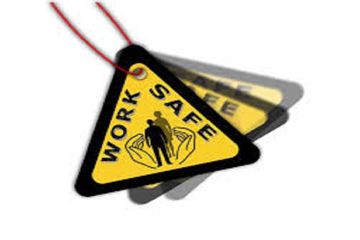Do You Feel Safe At Work? It Is Time We Start This Conversation
On a recent trip to Bangalore, I was delighted to find the Metro train driven by a woman. At the stations, all entrance gates and ticket counters were manned, in equal numbers, by men and women. Across India, women, in their blue or khaki overalls over a pin-striped shirt, are a familiar sight in public places, malls and corporate offices now.
We might cheer for women at the workplace, but there is also reason for disquiet. Consider this report by Mint: India’s female labour force participation rate fell nearly seven percentage points to 22.5% between 2004-05 and 2011-12, according to NSSO data. The sixth economic census reiterates these findings. While women make up nearly half the population, they account for only a quarter of workers employed, it said.
Contrast that with this report: Of the 123 million women age 16 years and over, in the United States, 72 million, or 58.6 percent, were labour force participants, working or looking for work. Women comprised 47 percent of the total U.S. labour force. Women are projected to account for 51 percent of the increase in total labour force growth between 2008 and 2018, in the U.S.
What ails women’s employment in India?
A friend, a human resource manager at a top company in Mumbai, told me that she had to leave office at 1am once, because everyone’s ‘ass was on fire’ during appraisals. Naturally a taxi is booked, the driver’s credentials impeccable, but how do you guarantee a safe journey through roads at midnight? Isn’t it better to ensure stricter working hours, so as to obviate the potential danger arising out of overtime?
Staying late, alone, in office can give you the creeps. For many, afterhours do tend to lower their guards. How do you ensure that there are no unwanted advances from male colleagues? Or, as in the case of Aruna Shanbaug, the nurse who was raped and strangled by a ward boy, she survived but remained in a tragic condition for decades till her death , how do you ensure the safety of a women employee when the nature of her work demands an overnight stay?
“The suggested guidelines for the safety for women at the workplace are broadly categorized under four heads: 1. Physical 2. Environmental 3. Organizational 4. Educational.”
Each of the above heads has two types of recommendations: the Required and Aspirational.
The physical aspect focuses on the physical security of women; that they come to no bodily harm. A minimum requirement in this case has been listed as, a thorough screening of all the casual staff like guards and drivers; the workplace should also have CCTVs monitored, or manned doors.
An aspirational qualification would be electronic surveillance, GPS tracking of vehicles, mobile Apps, and risk assessment of neighbouring areas.
The environmental aspect complements the physical. Well-lit work areas, clearly displayed contact numbers are non negotiable requirements. Aspirational or desirable requirements include regular audits, analysis and patrolling, maybe even regular breathalyser tests on the cab drivers.
What do you do when your boss says: "I will drop you home"?
Women may enjoy greater consideration and security at the workplace, yet unspoken dangers lurk. In the words of some women working in the corporate workspaces, they consider following as threats to their security:
“When tharki bosses say ‘I will drop you home’.”
“When unwanted people take your contact details from your professional mails.”
“When you have to work late and drive home late on a lonely road.”
“When a male colleague acts funny, and keeps at it consistently.”
It appears that women are most afraid of advances from their male co-workers. Clearly, educating the men in the workplace is the best step forward.
Organisations must have a code of conduct in place and ensure compliance of the same. They should seek employee feedback on company transport. Supervisors should be trained to respond positively to complaints of sexual harassment.
The educational aspect here is to make women made aware of their rights at the workplace, and encourage them to report any untoward incident. Regular reminders of the ethical values of the company educate both men and women. The company should aspire to sensitise the male employees during induction. This conversation must continue, for all long as it takes to make work-spaces safe, and to enable more women to join the workforce.
















